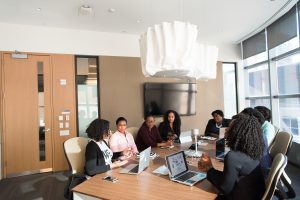Gender equality and women’s empowerment have been crucial issues for decades, sparking conversations and movements aimed at dismantling systemic barriers and achieving parity in all aspects of life. While progress has been made, there is still a long road ahead to achieve true gender equality. Non-Governmental Organizations (NGOs) have played a pivotal role in this ongoing struggle, advocating for women’s rights, providing support, and driving positive change. In the past decade, Millennium Development Goals (MDGs) sought to achieve this in Goal 3 (Promote gender equality and empower women). However, some researchers like Kabeer (2020) argued that women empowerment and equality concepts could be seen in almost all the MDGs. For example, Kabeer (2019) noted that improving maternal mortality captured a facet of empowering women’s health and well-being. The Sustainable Development Goals also cover gender equality and empowerment issues in goal 5 (Achieve gender equality and empower all women and girls). Gender equality, according to the United Nations Women Chapter (2022), “implies that the interests, needs, and priorities of both women and men are taken into consideration, recognizing the diversity of different groups of women and men.”
In this article, we will explore the importance of gender equality and women’s empowerment, examine the challenges that persist, and delve into the significant role NGOs play in advancing these vital causes.
The Importance of Gender Equality and Women’s Empowerment
Gender equality is not only a fundamental human right but also a prerequisite for building a sustainable and just society. When women and girls are empowered, they contribute to economic growth, enhance social cohesion, and drive progress in various sectors. Research consistently shows that societies with higher gender equality are more prosperous, peaceful, and equitable. It is vital to recognize the individual and collective potential that women hold and acknowledge their rights to participate fully in all aspects of life, free from discrimination and violence.
Challenges to Gender Equality and Women’s Empowerment
Despite significant advancements, gender-based discrimination and violence persist worldwide. Women continue to face challenges such as:
- Gender-Based Violence
Gender-based violence, including domestic violence, sexual assault, and human trafficking, remains a pervasive issue. Many women and girls are subjected to physical, emotional, and sexual abuse, leading to significant physical and psychological harm. - Unequal Access to Education
In certain regions, girls still face barriers to accessing quality education. Factors such as early marriage, cultural norms, lack of educational infrastructure, and discrimination can prevent girls from attending school or completing their education. - Gender Pay Gap
Women often earn less than men for performing the same work or jobs of equal value. The gender pay gap is a persistent problem across various industries and countries, leading to economic disparities and financial insecurity for women. - Underrepresentation in Leadership and Decision-Making
Women remain underrepresented in positions of power and decision-making, both in politics and the corporate world. This lack of representation hinders the ability to address women’s specific needs and perspectives adequately. - Limited Access to Health Care
In certain regions, women face limited access to essential healthcare services, including reproductive healthcare. This can result in adverse health outcomes and exacerbate existing gender inequalities.
The Role of NGOs in Advancing Gender Equality and Women’s Empowerment
Non-governmental organizations (NGOs) play a crucial role in advancing gender equality and women’s empowerment by actively addressing the multifaceted challenges faced by women worldwide. Through their diverse initiatives, advocacy efforts, and community engagement, NGOs contribute significantly to dismantling gender-based discrimination, promoting women’s rights, and fostering inclusive environments where women can thrive. By collaborating with governments, local communities, and international entities, these organizations leverage their expertise and resources to create tangible change, empower women economically, socially, and politically, and ultimately pave the way for a more equitable and just society for all.
- Advocacy and Awareness
NGOs serve as powerful advocates for gender equality, raising awareness about women’s rights, challenging discriminatory practices, and influencing policy changes. They engage in research, data collection, and analysis to present evidence-based arguments for policy reforms that promote gender equality and women’s empowerment. - Education and Training
Many NGOs focus on providing education and training programs to women and girls, enhancing their skills, knowledge, and self-confidence. By breaking down educational barriers, women gain better access to opportunities in the job market and decision-making roles. - Economic Empowerment
NGOs often implement programs that support women’s economic empowerment, including entrepreneurship training, microfinance initiatives, and vocational skill development. By fostering economic independence, women can break free from cycles of poverty and gain more control over their lives. - Health and Well-being
Prominent NGOs work to improve women’s health and well-being by ensuring access to quality healthcare services, reproductive rights, and family planning. They also combat issues like gender-based violence and female genital mutilation, advocating for laws and policies that protect women’s safety and rights. - Political Participation
NGOs actively encourage and support women’s involvement in politics and decision-making processes. They strive to increase the number of women in leadership positions and raise awareness about the importance of diverse representation in governance. - Community Empowerment
NGOs work at the grassroots level, engaging with communities to address gender-based violence, early marriage, and harmful traditional practices. Through community-led initiatives, they promote gender equality as a shared value.
Gender equality and women’s empowerment are essential for creating a fair and prosperous world. The efforts of NGOs have been instrumental in driving progress toward these goals, but there is still much work to be done. By advocating for women’s rights, providing support, and implementing various programs, NGOs actively contribute to dismantling the barriers that hinder gender equality. To achieve lasting change, governments, businesses, civil society, and individuals must collaborate with NGOs to build a more inclusive and equitable world, where women can fulfill their potential and contribute fully to society’s advancement. Let us unite in this collective journey towards gender equality, ensuring a brighter and more equitable future for all.
Contact us at contact@rif.ng or call us on +2348154105285 for more details.




